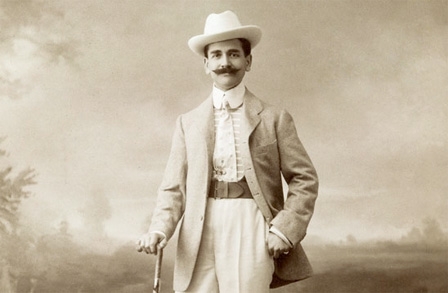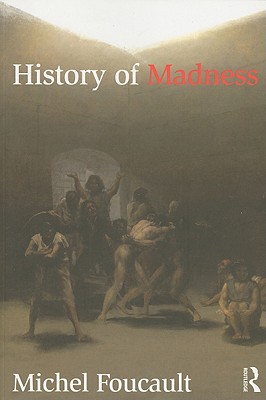Last updated on December 30, 2013
So read Part One for this stuff to make sense.
Firstly, Foucault’s ideas on epistemology change rapidly. The very idea of self-effacement comes through in his philosophy. As he says himself,
I am no doubt not the only one who writes in order to have no face. Do not ask me who I am and do not ask me to remain the same: leave it to our bureaucrats and our police to see that our papers are in order.
One can see that from The Archeology of Knowledge Foucault’s method remains a historical archeology designed to understand discursive events in specific time periods, or strata. However, by the time Foucault had begun to write The History of Sexuality, Foucault’s epistemic method turned to genealogy, an attempt to connect discursive historical events into causal explanations. Foucault manages to confuse any reader who attempts to synthesize his ideas into a single category by his various methods – they are not meant to be unified.
Game development, similarly, changed in its tropes and methods through time. As the technology to make video games rapidly out-paced the actual design of said games, developers transitioned from more abstract graphics to the glowing aesthetic splendor of enhanced 3D visuals.
Now, however, we begin to reach the uncanny valley, and developers now retreat back to their den of 2D pixel art. The age of the Internet also changed distribution methods, making once-dead genres and games viable without the need for physical distribution. In fact, I’d say the results are more scattershot than ever, but the fundamentals of game design remain the same throughout (my thoughts on the up and coming crash of the video game market is basically this: the games I like to play aren’t often made by Western AAA game designers).
Secondly, this epistemological instability exists because Foucault wished to remove the human subject from the process of writing. In literature, he discovered the works of an author named Raymond Roussel. Roussel did not explicate his personal feelings in his work nor did he write with any touch of subjectivity. Rather, Roussel wrote solely from a set of rules he established. His works evoked not the experience or narration of characters, but spatial and temporal descriptions. In effect, Roussel’s rules removed the human subject from the process of authoring. Foucault, in adopting Roussel’s ideas, appropriated the idea of a “rule set” and applied them directly to individuality.

And, you might say, to associate game development with a collective, a company, rather than any single director goes to show the collaboration as the key element. Even when I knew many of the Capcom employees had left the company after Clover’s dissolution, I did not hesitate to purchase Devil May Cry 4. Although I knew Bayonetta lay on the horizon, I could still see that DMC4 would provide its own level of enjoyment, along with one of the deeper combat engines out of the series taking its notes from DMC3. Even then, we can see this game as indistinguishable from its predecessors (barring DMC2).
In video games, as in Foucault, we can often reject the idea of an author entirely. There’s too many hands in too many pies with too many departments, and attempts to localize them only assuage our human minds into specific categories, as we are wont to do. The idea of an author reflects an individualization of concepts, an attempt to tie ideas together to a particular person. In reality, of course, we’re going to find a vast team of people made a game, or a program on which a game was created, or even programming languages. It all starts somewhere, piggybacking off someone else’s work. An author, as known in society, exists as an idea that “wards off death” – a fear of failing to leave one’s mark. We could call this the exact opposite of denying the self.
The idea of an “author” allows categorization, the ability to define, unify, and classify texts under a common banner. Since death remains the end of subjectivity, society attempts to connect the personality and characteristics of the author, as an individual, to their works. Again, we see this process happening now in the video game realm, as we continue to identify personalities to which we should listen.
However, this task becomes impossible as soon as the definition of a work is questioned. What counts as a work? Do letters, papers, personal correspondence, or journal entries exist in an author’s oeuvre? What part of the video game do you speak, and why should I consider this or that the totality of the experience? Thus, the author classification exists primarily to perform the “author function” – namely, that specific classification process in society.
Of course, this idea of the “author function” can only be known as a cultural and social construct. No person is simply defined as an author; they must fit a certain set of requirements that develops over a period of time. Foucault uses “author function” because an author has a variety of roles within a work which he designates as a plurality. For example, the person who writes the introduction to a novel varies wildly from the first-person narrator of a story or the voice of a specific character within that story. All three can claim to be the author, but each has an entirely different role within a particular text.
This applies not only to stories but scientific or mathematical treatises. Within each role, there is a socially accepted use of language that determines what “author function” occurs in that area. Following Roussel’s lead, because of these preconceived notions of language’s use, the author literally loses his/herself within language. The possible ways an author can express his/herself remains entirely limited by their environment.
Thus, the idea of the author as a self-expressive entity dies with this conception. The totalitarian ideal of the singular author just doesn’t exist in video games unless we, as a community, identify that role as an existent thing in and of itself. Of course we do that! We do this with everything, especially in the West. By doing this, we actually limit their potential in crafting new play experiences and development of mechanics. We throw an overlay on it, whether as a product, a vehicle for messages, or otherwise and inevitably choke the life out of the enterprise.
Rather, we should see the “death of the author” as an opportunity. The idea of an author can only be understood as a construct that limits creativity. It forces an author, of any sort, into a typecast role and specific function. The subjective, here, limits the author’s ability for expression by limiting the use of language. Foucault wishes for the author – including himself – to merely allow language to express itself. In doing so, language will move beyond the unified authorial project that culture has imposed upon the idea of the author and find a truth beyond the subjective self, beyond our need to establish our egos in opposition to other egos with different opinions.
Foucault wants to twist and contort language (in our case, video games) with paradoxes and unorthodox methodologies to bring language to its absolute limits. In this, Foucault desires to achieve transgression, an experience that moves a person beyond the limits of intelligibility and propriety. By pelting language with such force, Foucault hopes to move one beyond the limits of ordinary concepts to experience a glimpse of radical new thoughts that could not be achieved otherwise.
The “human subject” is removed as a transcendent category and become a thing in itself, albeit unspoken. Language, as a result, should efface
the breakdown of philosophical subjectivity and its dispersion in a language that dispossesses it while multiplying it within the space created by its absence.
Language literally replaces the human subject in a limit-experience; a person balances his/herself on the fence between the human ideas of sanity and madness, and it is here where truth and knowledge can be found. For individual to understand themselves, they must grasp past what can be known rationally and logically.
These ideas show clearly why Foucault wrote History of Madness – not all persons called “mad”, in the sense of insanity, were indeed mad throughout history. Some merely introduced new ways of thought, but these ideas grasped beyond the ideas of that culture or society. The foundation of Foucault’s thought, therefore, is the removal of subjectivity in terms of a socially accepted definition or category. Foucault does not want to remove subjectivity, but the idealized and socialized form (as in the idea of the author) that forces a person into particular modes of behavior.
So, in that sense, I implore us all to stop trying to make video games into the thing we want them to be, or what society shapes them to be. You can imagine quite rightly that the violent response from this subculture to the outside world has much to do with society’s constructs infringing on their beloved pastime, much of it due to its exclusivity in what it can do.
For all our sakes, I hope we can move away from the cycle of endlessly repeating the same steps with all our entertainment media. Sometimes the best message isn’t a treatise about human nature, but a shotgun to some monster’s face. I totally understand why some would feel otherwise, but just play the games and you’ll understand. Why limit ourselves to the pretentious serious mold, holding those as the pinnacle, when we can see so much variety in video games?
The Bible isn’t often pretentious, if ever. Why should our games?

